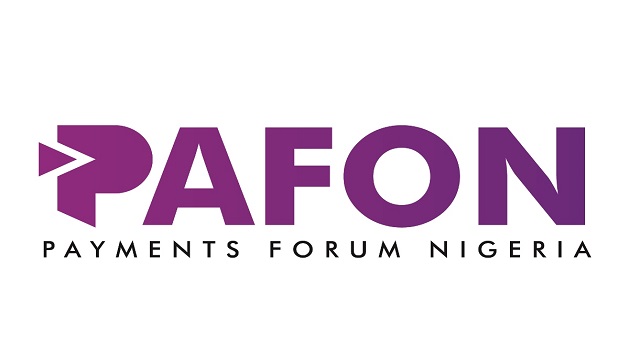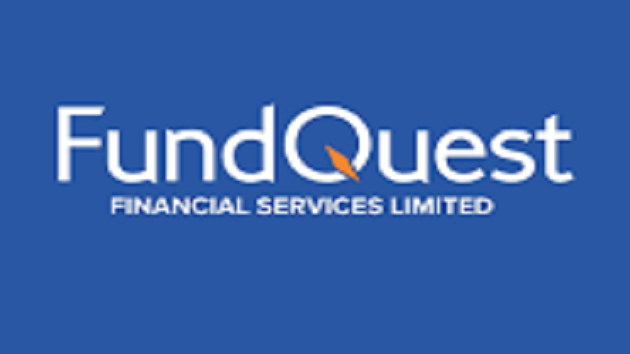E-Financial
Experts to Discuss Trust, Security and Privacy in AI Era @ Payments Forum Nigeria 1.0

Financial industry experts are warming up for the first edition of Payments Forum Nigeria (PAFON), scheduled for the first quarter of this year.

The Payments Forum Nigeria is a cross-industry platform focused on addressing issues that require broad cooperation and coordination across many constituents in the payments industry.
Payments Forum Nigeria which will take place at Oriental Hotel, Lekki Road, Lagos on Thursday March 21, 2024, by 9am, aims at providing an inside-look at the industry, offering perspectives from key stakeholders, including payment networks, technology innovators, leading merchants, issuers, acquirers and payment processors.
Throughout the years, the finance world has shifted into something much more than just banking and big corporations.
Blockchain and the FinTech society have managed to create a new world that is much more inclusive, and full of opportunities.
Based on a report by Gartner, by 2024, 40% of privacy compliance technology will rely on AI, up from 5% in 2019, and by 2025, 60% of large organizations will use at least one privacy-enhancing computation technique in analytics, business intelligence, or cloud computing, and financial services industry is not exempted.
For instance, effective April 2024, Nigerian financial institutions will be mandated to implement stricter Know Your Customer (KYC) measures, requiring all customers to provide their Bank Verification Number or a national identification number (NIN) for account or wallet opening, following a circular by the Central Bank of Nigeria.
“Our goal is to enable information exchange and knowledge sharing on key industry insights issues amongst key stakeholders, with the objective of ensuring a collaborative and proactive approach to push for policies that enable growth, tackling/mitigating fraud and limiting occurrences and losses”, said Mr. Chike Onwuegbuchi, the co-founder of TechCastle Foundation, organisers of Payment Forum Nigeria (PAFON).
He said that the Forum is driven by the reasons to; “educate and inform financial service players and other stakeholders on various issues and trends (both locally and globally); proactively share data/information amongst banks, Fintechs and other service providers, to enable prompt responses to prevent and/or limit (customer-related) losses; and discuss key Payments security trends”.
“Speakers will be drawn among industry players such as banks, Fintechs, mobile money operators, blockchain experts, Cybersecurity, etc., as we expect attendees from the Central Bank of Nigeria (CBN); e-Banking Heads; Chief Compliance Officers of banks in Nigeria; Chief Internal Auditors of banks in Nigeria; Office of The National Security Adviser; Switching companies; the Economic and Financial Crimes Commission; Licensed Mobile Payment Operators; Electronic Payments Providers; Information Security Experts; Consumer Protection; Financial Policy and Regulation; Information Technology; Legal Services; Banking Supervision; Corporate Communication; Shared Services Office; Blockchain Security Experts, etc”, he added.
For participation and sponsorship, please contact: Mr. Chike Onwuegbuchi via: 08123355522 or Peter Oluka: 08184346261 or email: africaTechAllianceForum@gmail.com.
E-Financial
FundQuest Empowers Women Entrepreneurs, Fueling Economic Growth

FundQuest Financial Services Limited marked this year’s International Women’s Month with a renewed commitment to economic empowerment, hosting the inaugural FundHER by FundQuest Conference.

This initiative brought together over 100 women-led Small and Medium Enterprises (SMEs), providing them with actionable business insights, high-value networking, and, most importantly, access to funding.
Delivering the first keynote address, Dr. Jennifer Seidu, Principal Consultant, JV Management Consulting Limited, underscored the critical hurdles female entrepreneurs face: constrained access to funding, market expansion limitations, regulatory roadblocks, and operational inefficiencies.
She lauded FundQuest’s decisive intervention through FundHER, recognising the initiative as a timely and much-needed response to the financial inequities that women-led businesses encounter.
Joan Ediagbonya, Group Head, Brand Communication and Customer Experience at FundQuest, also reinforced these concerns with data, pointing out that while women own 45 per cent of SMEs in Nigeria, only 10 per cent have access to formal funding. Quoting Michelle Obama, she emphasised, “No country can ever truly flourish if it stifles the potential of its women and deprives itself of the contributions of half of its citizens.”
Similarly, Ms. Olubukola Olaigbe, CEO of Veedic Nigeria Limited, shared how accessing financing from FundQuest facilitated her logistics firm’s expansion, proving that with the right financial support, women entrepreneurs can achieve remarkable business growth.
Speaking on the future of FundHER, Mr. Abiodun Akinjayeju, Managing Director and CEO of FundQuest, made it clear that this initiative is here to stay. In his words; “If you educate a woman, you educate a nation; if you fund a woman’s business, you are funding the economy.”
E-Financial
Fidelity Bank Records a 210.0% Growth in PBT to N385.2bn

Fidelity Bank Plc, leading financial institution, released its 2024 full-year Audited Financial Statements, reporting a 210% growth in Profit Before Tax to N385.2 billion.

According to the Bank’s results released on the Nigerian Exchange (NGX) on Friday, 28 March 2025, Gross Earnings increased by 87.7% to N1,043.4bn, driven by 106.9% growth in interest and similar income to N950.6bn.
The increase in Interest Income was led by a combination of improved yield on earnings assets and 51.6% expansion in earnings base to N6.3tn. This led to a Profit After Tax of N278.1 billion, representing a 179.6% annual growth.
Commenting on the results, Dr. Nneka Onyeali-Ikpe, managing director/chief executive officer, Fidelity Bank Plc said, “We are delighted with our 2024 full-year (FY) performance, which showed strong growth across key revenue lines, improved asset quality, and significant traction in our strategic business segments.
“Our impressive results led to a triple-digit increase (210.0%) in Profit Before Tax (PBT), rising from N124.3bn in 2023 to N385.2bn in 2024.”
A further review of the financial performance revealed that the bank’s net interest income increased by 127.1% to N629.8 billion, driven by a high-yield environment in 2024.
To optimize its margin, the bank sustained its asset yields above funding cost by maintaining a high low-cost deposit profile at 92.6%. This led to an increase in its Net Interest Margin from 8.1% in 2023 FY to 12.0%.
Similarly, the bank continued to deepen its market share in both the corporate and retail segments, with customer deposits increasing by 47.9% from N4.0trn in 2023FY to N5.9trn. The increase was driven by strong double-digit growth across all deposit types.
The Retail Banking Business gained significant traction with savings deposits increasing by 28.8% to N1.1trn, marking the 10th consecutive year of double-digit annual growth in savings deposits.
Despite the difficult economic terrain in 2024, the bank has continued to support the real sector of the economy by increasing its Net Loans & Advances from N3.1tn in 2023FY to N4.4tn in 2024FY.
“This remarkable performance demonstrates our capacity to deliver superior returns to our shareholders. In line with our commitment to them, we have declared a final dividend of N1.25 per share, bringing our total dividend for the 2024 financial year to N2.10 per share”, explained Onyeali-Ikpe.
Having consistently paid dividends since 2006, Fidelity Bank will pay investors a total dividend of N2.10 per share for the 2024 financial year, subject to shareholders’ approval at its Annual General Meeting (AGM) on 29 April 2024. The dividend will be paid on 29 April 2025 to shareholders whose names appear on the register of members as of 15 April 2025.
It will be recalled that the bank successfully completed the first phase of its capital raising exercise through a Public Offer and Rights Issue in 2024, which were oversubscribed by 237.92% and 137.73%, respectively.
The positive result is a testament to the strength of the Bank’s franchise in the capital market. A total of N175.9bn was recognized as fresh capital in 2024 financial year from the exercise, which had a positive impact on its Capital Adequacy Ratio (CAR) at 23.5%.
The bank plans to conclude the second phase by Q3 2025, ahead of the Central Bank of Nigeria’s deadline, which will further strengthen its capital base and reaffirm its attainment of Tier 1 Bank status in the Nigerian Banking Industry.
Fidelity Bank Plc is a full-fledged commercial bank with over 9.1 million customers who are serviced across its 251 business offices and various digital banking channels in Nigeria and the United Kingdom.
The Bank is the recipient of multiple local and international Awards, including the 2024 Excellence in Digital Transformation & MSME Banking Award by BusinessDay Banks and Financial Institutions (BAFI) Awards; the 2024 Most Innovative Mobile Banking Application award for its Fidelity Mobile App by Global Business Outlook, and the 2024 Most Innovative Investment Banking Service Provider award by Global Brands Magazine. Additionally, the Bank was recognized as the Best Bank for SMEs in Nigeria by the Euromoney Awards for Excellence and as the Export Financing Bank of the Year by the BusinessDay Banks and Financial Institutions (BAFI) Awards
E-Financial
Nigeria Gets Fresh $500m World Bank Loan for Economic Stimulus Programme

The World Bank has approved a $500 million loan to Nigeria to support the country’s Community Action for Resilience and Economic Stimulus Programme.

According to information obtained from the bank’s website on Sunday, the approval, which took place on March 28, 2025, marks a significant step in addressing Nigeria’s economic challenges through expanded access to livelihood support, food security services, and grants for poor and vulnerable households and firms.
The project, officially titled the NIGERIA: Community Action (for) Resilience and Economic Stimulus Program, aims to provide essential support to households affected by economic downturns and to bolster community resilience.
It also seeks to improve food security and create economic opportunities for populations most affected by recent economic disruptions.
According to the World Bank, the program represents a significant step toward addressing systemic vulnerabilities in Nigeria’s economy.
By channeling resources directly to underserved communities, the project should alleviate the burden of rising living costs while fostering sustainable growth.
The $500 million loan is not the only financial commitment Nigeria anticipates this week as two additional funding packages are in the pipeline, awaiting final approval.
One of the loans is valued at $80 million and will focus on accelerating nutrition outcomes across the country.
The second, worth approximately $552 million, is designed to enhance access to quality basic education nationwide as both projects are scheduled for final clearance on March 31, 2025.
These loans are part of the World Bank’s broader strategy to support Nigeria’s development priorities, most especially in areas such as healthcare, education, and poverty alleviation, while the institution emphasized the importance of implementing these programs efficiently to ensure maximum impact.
While the loans aim to address urgent socio-economic needs, Nigeria’s rising debt profile has raised concerns among stakeholders. Under the President Bola Tinubu’s leadership, the country has received approvals for 11 World Bank projects totaling 7.45 billion in less than two years. However, data from the Debt Management Office (DMO) reveal that only 774.99 million (about 16% of the approved amount) had been disbursed as of July 31, 2024.
This slow pace of disbursement has sparked debates about the efficiency of project execution and fund utilization

 Telecom1 day ago
Telecom1 day agoMTN, Lynk Global Make Africa’s First Satellite-to-Mobile Call

 General News1 day ago
General News1 day agoSERAP Asks National Assembly to Drop Bill to Jail Nigerians who Fail to Vote

 E-Business1 day ago
E-Business1 day agoSystemSpecs’s Subsidiary Deelaa Becomes Whatadeal

 E-Financial1 day ago
E-Financial1 day agoNigeria Gets Fresh $500m World Bank Loan for Economic Stimulus Programme

 E-Financial1 day ago
E-Financial1 day agoUninsured Depositors of Heritage Bank to Receive Liquidation Dividends In April – NDIC

 Telecom1 day ago
Telecom1 day agoSmart Treasure Investment Team’s Initiatives Eradicate Poverty, Says Aminu

 E-Business1 day ago
E-Business1 day agoCybersecurity Firm Says It’s Time to Back it Up, As the World Marks World Backup Day

 General News1 day ago
General News1 day agoFG to Elevate Enugu Tech Festival to National Event – Minister



























